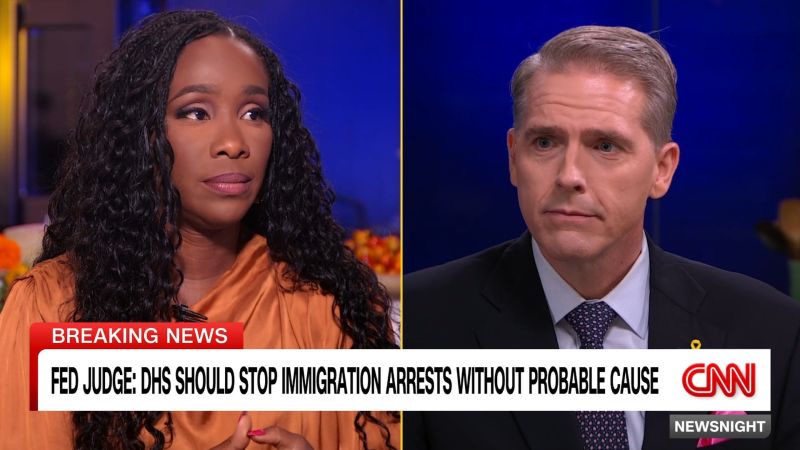A federal judge has ruled that the Department of Homeland Security (DHS) must cease immigration arrests in Los Angeles that lack probable cause. This decision follows claims that DHS was detaining individuals based solely on their race, spoken language, or occupation, without sufficient justification.
Judge Dolly M. Gee issued the order during a hearing in July 2023, emphasizing the need for lawful enforcement practices. The ruling underscores the importance of adhering to constitutional rights, particularly the Fourth Amendment, which protects against unreasonable searches and seizures.
The judge’s decision came after a legal challenge raised concerns about the methods employed by DHS agents. The court found that these tactics disproportionately targeted specific communities, raising serious ethical and legal implications. The ruling mandates that immigration enforcement must be based on credible evidence rather than broad profiles.
In her statement, Judge Gee highlighted the detrimental impact of these practices on the immigrant community in Los Angeles. She noted that such actions foster an environment of fear and mistrust, which can discourage individuals from seeking necessary services or reporting crimes.
The DHS has yet to comment on the ruling, but it has faced increasing scrutiny over its enforcement strategies in recent years. Critics argue that the agency’s current practices contribute to a lack of accountability and transparency, further alienating immigrant populations.
As this ruling is expected to reshape the landscape of immigration enforcement in the United States, advocates for immigrant rights see it as a significant victory. They argue that it reinforces the necessity for law enforcement to operate within the confines of the law, ensuring that individuals are not unjustly targeted based on inherent characteristics.
The implications of this order may extend beyond Los Angeles, potentially influencing immigration policies in other jurisdictions. Legal experts believe this case could set a precedent for how immigration laws are enforced nationwide, urging other courts to consider similar principles in their rulings.
In light of this decision, the DHS faces pressure to revise its operational protocols. Stakeholders from various sectors, including law enforcement, civil rights organizations, and community leaders, are calling for a more just and equitable approach to immigration enforcement.
The ruling marks a pivotal moment in the ongoing debate over immigration policy in the United States, highlighting the balance between national security and the protection of individual rights. As the situation develops, further legal actions and policy reviews are anticipated in the wake of Judge Gee’s order.





































































